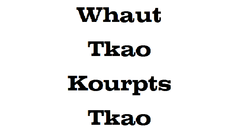
Will Voice Recognition Put Medical Transcriptionists Out of Work?
by PJDeneen
Voice recognition software is something some medical transcriptionists loathe and fear. But will it really steal your job?
The Truth About Voice Recognition
Are you a medical transcriptionist afraid of losing your job to voice recognition? When I first attended school to learn medical transcription in 2004, there was already talk of voice recognition software taking over the industry and putting medical transcriptionists out of work. But as with most of the hype about machines doing the work of humans, some is true and some is just bunk. Before you quit your job or decide against medical transcription as a career, learn some facts about VR.
What is Voice Recognition?
Voice recognition, also called speech recognition, allows users to dictate into it and have the software do the work of typing the words. There are three main problems with the software. One is that it has to learn the speech patterns and common words used by the dictator which takes time. Another is that no matter how well the software learns the words used, it still doesn’t have a human brain that understands the context of the dictation. Some variables that can trip up the software include a doctor who’s eating his lunch or mumbling while dictating or background noises that make it difficult to discern what’s being said.
Third is that the software doesn’t always get the punctuation right. For instance, the doctor may pause, and the software takes that as an end to the sentence and puts a period in when he was just looking over some notes.
From MT to Medical Editor
Our changing role in the field
This is where the medical transcriptionist comes in. Our role is quickly becoming one of medical report editor. In fact, you’ll see a newer term used in job ads, that of medical language specialist, which implies that we sometimes do more than straight transcription but also take on the role of voice recognition editors. There is no way that a medical report can be returned to the client after simply taking the dictation from the doctor. It has to be edited for grammar, punctuation and errors in translation. Medical transcriptionists are the perfect people to do this as we already understand medical terminology and we’re used to proofreading medical reports.
Is Medical Transcription a Dead-End Career?
Or should you hang on?
Will VR eventually take over our jobs? I don’t know. If so, I think it will take quite some time. I don’t believe humans will ever create the perfect VR software. It is changing the landscape of medical transcription however. If you peruse some of the MT forums such as MT Stars, then you know many MTs are disillusioned and leaving the field. Some dread having to learn VR. Companies may be instituting a VR platform without fully understanding the effects it will have on the MT or thinking it’s just another software platform for us to learn. Sometimes it even cuts down on production instead of speeding it up.
If you’re considering becoming an MT, you need to be aware that VR is the future and isn’t going away. Do you expect to be doing straight typing? If so, then you need to rethink MT as a career. Or are you a seasoned MT fed up with all the changes and lower pay to boot? Only you can decide if VR is something you’re willing to learn or if you want to leave the field. Like many others in careers that utilize computer technology, we need to adapt to advances as they come along. I believe that eventually VR software will make our lives easier and that right now we're in the growing pains stage. Medical transcription is still one of the best and most legitimate work-at-home jobs out there.
Do you think voice recognition is ruining the medical transcription industry?
You might also like
Court Reporter Career OptionsNot all stenographers are in the courtroom. Learn what other career opportuni...
Career Coach DrivingKnowing the basics of coach driving will help you decide if this is the job f...



 Supplies and Techniques for Repairing Bibles and Other Cherished Bookson 12/21/2012
Supplies and Techniques for Repairing Bibles and Other Cherished Bookson 12/21/2012
 How to Create Your Own Monogrammed Filet Crochet Bookmarkon 12/31/2011
How to Create Your Own Monogrammed Filet Crochet Bookmarkon 12/31/2011
 Crochet Towel Topper Free Patternon 11/28/2011
Crochet Towel Topper Free Patternon 11/28/2011
 How to Make Almond Milkon 11/25/2011
How to Make Almond Milkon 11/25/2011

